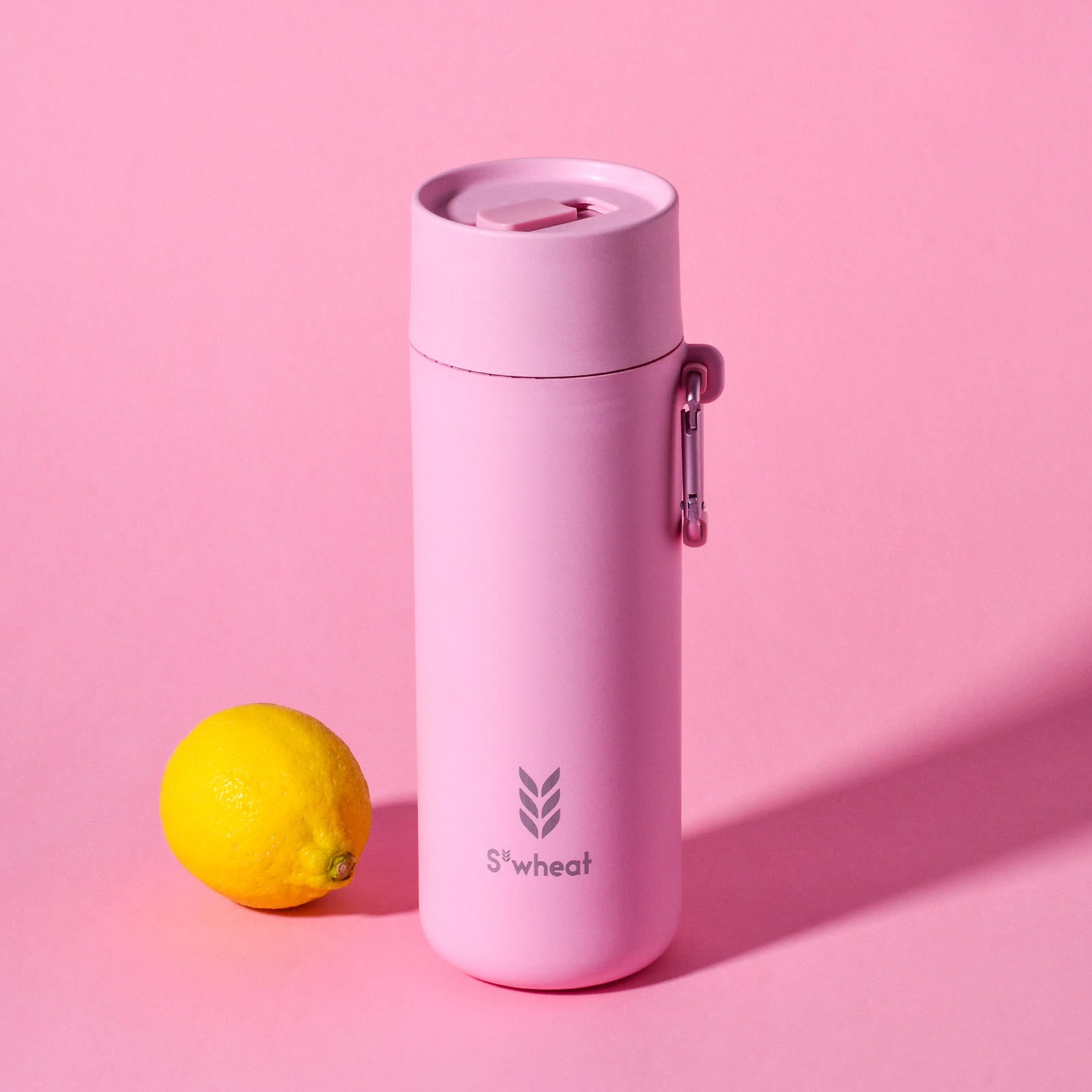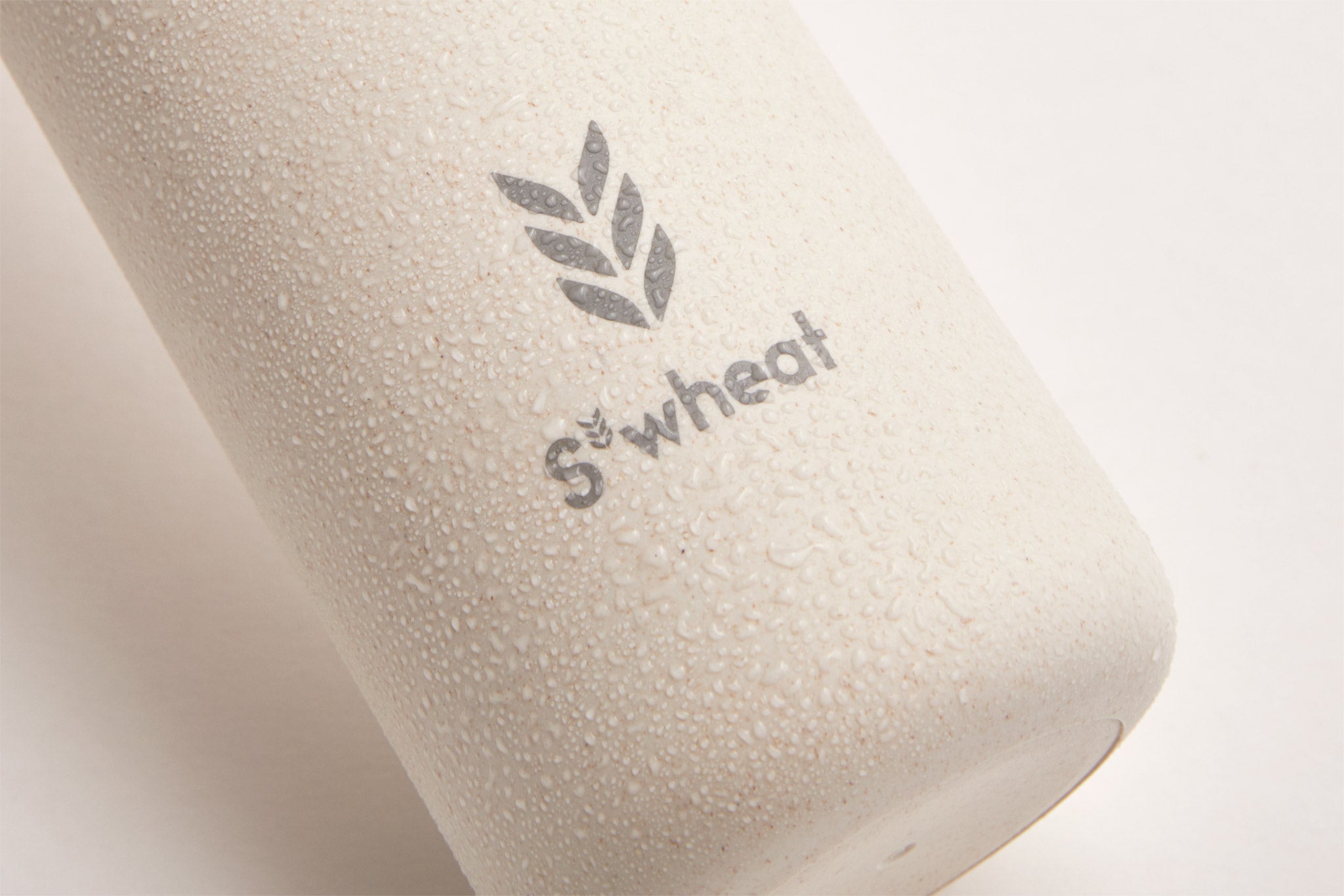What is the healthiest water bottle you can buy?
In this article we will discuss what the healthiest water bottle you can buy is. We’ll be comparing plastic, steel and glass bottles and looking at:
- Material type.
- How easy it is to clean.
- If there is any concern for leeching chemicals in your water.
- How long it will last you.
Reusable Plastic Bottles:
Firstly, let’s look at how the material type of your reusable bottle might affect your drinks. Let’s start with the most common material on the market plastic. On average, In America, 29 billion plastic water bottles are consumed per year, with the average yearly rate only growing. For every six water bottles bought, only one of them is recycled. The average water bottle can take as long as 1,000 years to biodegrade! This also leads to pollutants leeching into are drinking water and soil.
But what about reusable plastic bottles? Are these just as bad? Most reusable plastic bottles are made from a chemical called polyethylene terephthalate or more commonly known as PET. Various research studies show that PET plastics may be an ‘endocrine disruptor’, which may have side effects of altering the hormonal system. Even though PET doesn’t contain BPA and is completely BPA free, phthalates in bottles have been found to leech into your water, even more so when exposed or in contact with high temperature. Pthalates are an ester that is commonly added to plastic in order to make it more durable and flexible. This chemical is also part of the manufacturing process for cosmetics and other personal hygiene products. Phthalate may be harmful to the lungs, kidneys, and also the reproductive system.
What about reusable bottles that contain BPA? Are they any different? BPA stands for ‘bisphenol A’ which is a chemical created in the early 1950s made for manufacturing plastics and resins.
BPA can be found in various products that are made from polycarbonate plastics which are often used for producing items such as containers that store food, or items that hold water such as water bottles. They may also be found in other consumer products.
Research has shown that BPA can also leech from products into the food or drink within the container. Exposure to BPA is a concern due to possible health concerns within infants and children. Other studies also propose a possible connection between BPA consumption and increased blood pressure.
Besides from the huge environmental impact that plastics have on our environment there is also a real health concern. It’s a NO for reusable plastic bottles.
Steel Water Bottles:
Are steel bottles safe to drink from?
When looking for a steel bottle you should always consider what type of metal it is made from. Aluminium water bottles for example should be avoided as unconfirmed studies suggest a possible link to leeching aluminium and Alzheimer disease. However, stainless steel water bottles are safer to drink from, but this doesn’t mean they don’t have their own problems. One of the problems of stainless steel bottles are that some have been found to contain unsafe toxic levels of lead. If you want to check if your steel bottle is safe to drink from look for the #304 or 18/8 food-grade stainless steel mark.
Are steel bottles healthy to drink from?
If you can guarantee your steel bottle is made from food grade stainless steel and not aluminium, then it should be safe to drink from. However, you should check that the plastic and silicone contained in the lid are BPA free. There are various studies highlighting the dangers of BPA leaking into your drinking water.
Another factor you want to consider when buying a steel water bottle is how easy it is to clean? Many steel bottles have a smaller neck and mouthpiece making it impossible to clean without the aid of a brush. Try to choose a reusable bottle with a wider mouthpiece to ensure your bottle stays both clean and odour free.
An issue you will likely come across when using a steel bottle is ‘metallic’ tasting water, this can be a common sign that you need to clean your water bottle. We recommend cleaning your bottle with hot soapy water, so make sure you choose a bottle with a wide mouth or unscrewable cap large enough to fit a cloth in order to give it a proper clean.
What is the environmental impact of steel bottles?
If you are concerned with your environmental impact or are actively trying to lower yours. Steel bottles may not be the best option for you. Steel bottles require a lot of energy to produce, to produce 1kg of Steel deriving from iron uses: 20-50MJ to produce, which is anywhere between 5,550 to 13,900 watt-hours. For comparison glass requires 18-35MJ (5,000 to 9,700 watt-hours). Which is a pretty high energy output.
Can I microwave my steel bottle?
No, you cannot microwave steel bottles. Metals such as stainless steel reflect microwaves which can cause a fire. So unfortunately, with steel water bottles you cannot heat your drink back up.
Glass Water Bottles:
Are glass water bottles safe to drink from?
Glass water bottles can be a great alternative to steel and plastic bottles. They are BPA free and won’t absorb odour, so you don’t need to worry about leeching chemicals. You also won’t be greeted by any unpleasant tastes as long as you maintain your bottle by regularly cleaning it.
However, there are a lot of problems that come with glass bottles, with the main concern being their durability. Many Yoga studios, gyms and classes have banned glass water bottles due to fears of broken glass. Due to glass bottles having a more intricate manufacturing process this drives their price up leading them to be pretty expensive. Although glass bottles can last you a very long time if treated well, there are always concerns around their durability with how easy they are to smash.
So what is the healthiest water bottle to buy?
There is a new reusable bottle on the block. Not made from plastic, steel or glass. BUT plants! Yes, you read that right, plants! This water bottle is the world’s first reusable water bottle made from plants. This sustainable water bottle is made from Bamboo and wheatstraw which is known for its antibacterial properties. It’s both durable and incredibly easy to clean with its unscrewable cap and wide mouthpiece.
This bottle is even suitable for both hot and cold drinks which is perfect for taking to the office. It’s also lightweight so makes a great water bottle for taking to the gym or for going on long runs. The sustainable water bottle also comes equipped with a stainless steel carry handle which has the ability to clip onto bags which is a brilliant feature if you are a multitasker like I am and are always carrying something.
This eco-friendly water bottle also plants your very own tree (planted in your name) which you can even track and monitor as it grows. Which is a great feature and makes buying a water bottle as a gift a great idea.
It ticks all the boxes:
Antibacterial ✔
Easy to clean ✔
Durable ✔
Great for the planet ✔
Stylish ✔
You can get your S’wheat plant-based bottle here with this limited time code (Use code: HEALTHY at checkout for 20% off):
https://www.swheatbottle.com/products/swheat-reusable-bottle

Want to find out what makes a good reusable water bottle? Check out our other articles.
Have any questions? Thoughts? Let us know below what your favourite type of reusable water bottle is and why.




Leave a comment
All comments are moderated before being published.
This site is protected by hCaptcha and the hCaptcha Privacy Policy and Terms of Service apply.